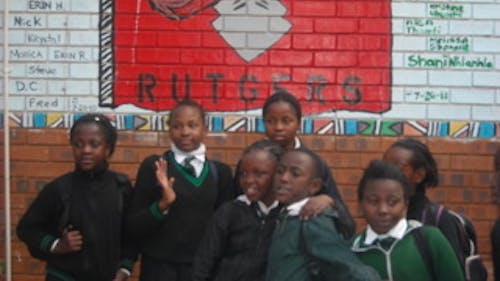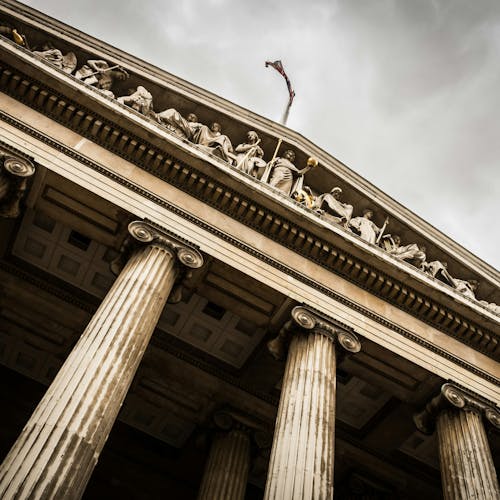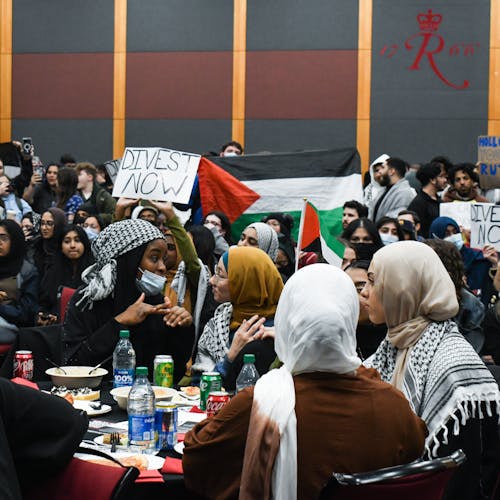South Africa Initiative at Rutgers encourages global learning, cultural awareness

Since it was first launched in 2001, Rutgers' Graduate School of Education (GSE) has been connecting students and educators between the United States and South Africa through the South Africa Initiative (SAI).
Senior Director of Strategic Alliances and Online Programs Darren Clarke said the goal of the initiative was to encourage students to become agents and architects of a more global society, especially in the 21st century.
“We provide an annual two-week cultural immersion experience for U.S. participants to increase their cultural awareness and knowledge, cultural empathy and to better understand their cultural identity while observing and examining the sociopolitical realities of South Africa communities and schools,” he said.
SAI partners with Rutgers Study Abroad and practitioners from schools in the state to operate the program. Clarke said participants must complete an essay about how they plan to integrate their experience with SAI into their work, classrooms or community.
The program involves Skype sessions with community partners in South Africa, who also organize to discuss current issues such as youth development and educational motivation.
Kelly Andrade, who is currently a registration and financial coordinator for Rutgers Study Abroad, said she participated in SAI as a student. Each year, the syllabus for the class is adjusted to keep students up to date.
Readings, lectures and discussions are based around current events, one example being apartheid, she said. Issues that are the focus of the class include unequal accessibility to education.
Regarding her own experience in South Africa, Andrade said even though the education system for marginalized groups did not have enough resources, the students were never unhappy.
“We visited a school where the classrooms had the bare items like the old-style long classroom tables and a handful of books,” Andrade said. “Although the classroom was bare, you wouldn’t see a sad face in those classrooms, because the students were devoted to their studies and genuinely wanted to learn.”
Ajua Kouadio, a doctoral student in the Graduate School of Education, who participated in SAI last year, also described her experience with the program.
“We genuinely gained new perspectives and appreciation for people and resources,” Kouadio said. “What we have and what we lack here (in the U.S.) is highlighted by being in another place.”
For instance, Kouadio said access to higher education is limited to Black youth in an attempt to keep universities “elite.” Participants of SAI met with other activists who are working to change this narrative through vocational and alternative education programs for youth pursuing higher education.
SAI also taught Kouadio about the diversity of South Africa.
“There is not just simply Black and white. There's Xhosa, Zulu and other ethnic groups in addition to immigrants from other parts of Africa, Europe and the United States,” Kouadio said. “I learned that South Africa is as beautiful and complicated, if not more so, than the country we are currently in.”
Andrade added that even though students learn about the sociocultural aspects of South Africa, it does not compare to experiencing the reality.
“Every participant and every student will experience and react to scenarios differently based on how their identity may be perceived and what they feel like is their identity,” Andrade said.
She recalled how she had a conversation with a high school student about beauty standards, and how the student did not consider herself as “beautiful” as Andrade because she had lighter skin.
“As I talked to the student more, she disclosed that there are different standards of beauty and how your race and class play a role in what is perceived to be beautiful,” Andrade said. “These types of moments are not something you can simply learn from books, but are vital to have in-person with an open mind and heart. Education is not simply going to school through a formal setting, but it also includes the informal learning and teaching that happens all around us."
Since the program’s conception, Clarke said more than 250 people from different walks of life have participated in SAI — including students from Rutgers — to learn about the shared history between the U.S. and South Africa, specifically about legalized segregation and the impact of education on democracy.
“Students over the years report that the SAI experience was life-changing for them,” Clarke said. “Many report the experience helped them to more clearly understand themselves in another sociocultural context, and deepened their understanding of race, class, privilege and oppression.”
He also said he takes pride and value in playing a role that helps students have an “educational adventure,” and that each year he develops as a professional.
“We realize that hope and change begins with individuals, and we embrace the enormous opportunity that education can play in improving the lives of the people in South Africa and the United States,” Clarke said.
Editor's Note: This article has been changed to accurately reflect gender pronouns and school affiliation.



